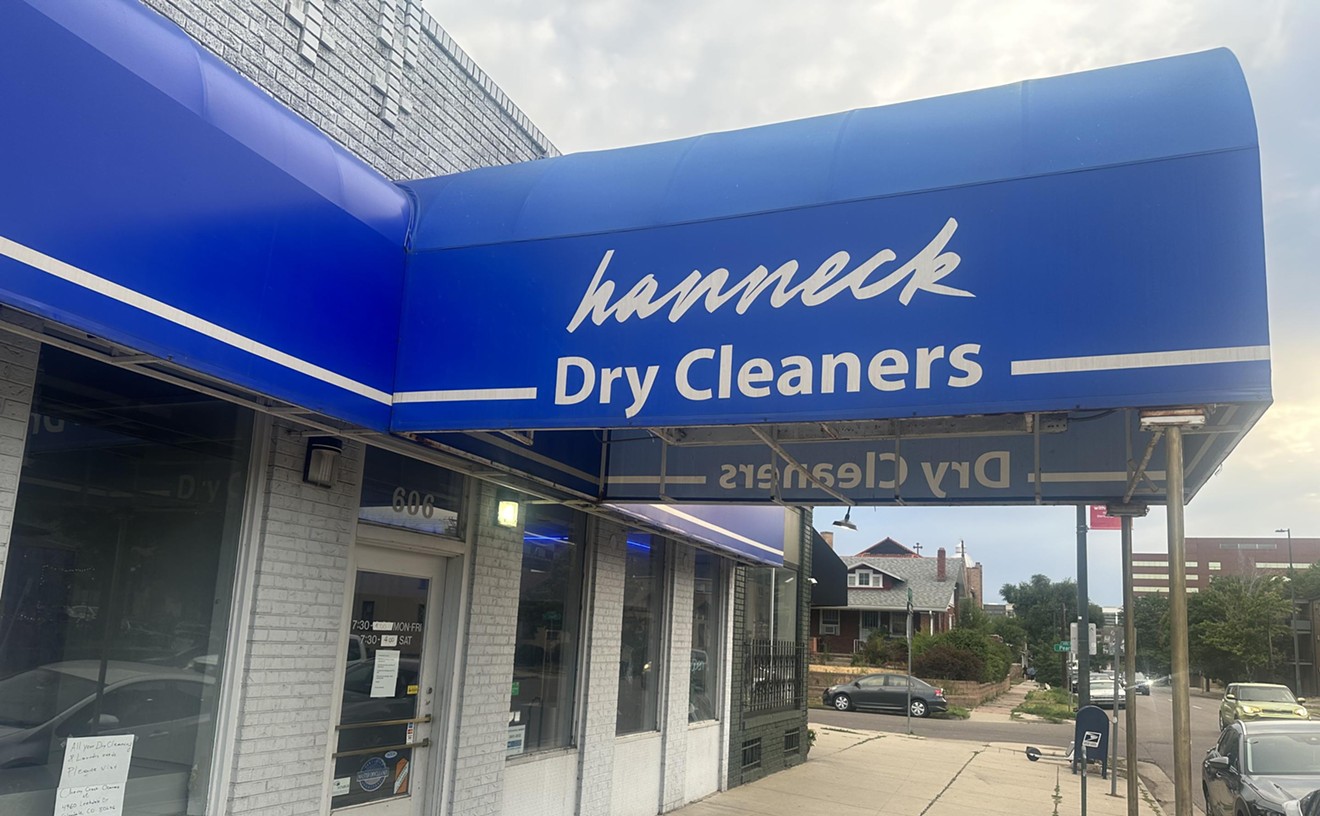"Our membership is better designated by a mindset than it is by a size," says Kelly, "and that in and of itself is a really important differentiator between the organization in the early days and where it is today."
Current members, who represent more than 500 marijuana-business licenses in the state, "believe in following the laws and the rules," she continues. "They believe in utilizing the systems and structures in place to be responsible players in the industry. And they believe in setting an example. They understand that other states and other countries are watching us, and they have a real appetite to be part of the solution and an example of how a regulated business environment can be beneficial."
The organization has been around since well before the November 2012 passage of Amendment 64, which legalized limited recreational marijuana sales, or the launch of retail sales in January 2014; its original name was the Medical Marijuana Industry Group. Under Elliott, the association was not nearly as transparent as it is today, and its positions alienated plenty of smaller operators.

Michael Elliott during a 2014 appearance on C-SPAN on behalf of the Marijuana Industry Group.
File photo
"I moved to Colorado to be a mom-and-pop licensee," she says. "Our company started in 2009, and it still exists, but it's under new leadership now and isn't exactly the same company it was when I was there. I haven't been involved with them since 2015, but I was the licensee before then, and we had dispensaries, grows and MIPs [the acronym stands for marijuana infused products]. We were primarily medical, and we were starting to integrate the recreational side when I sold my businesses to my remaining partners and my husband and I went to pursue other opportunities."
In addition, Kelly goes on, "I was a founding member of ACT 4 Colorado, the trade association for mom-and-pops. So I was often in conversations with MIG — sometimes on the same side, sometimes on the opposite side of the same issues. But as my perspectives and my company grew and matured, I found my way to MIG and was essentially the vice chair of the organization at the time I was appointed interim director," following Elliott's departure.
As for what led to Elliott and MIG parting ways, Kelly is cautious but direct. "I think that with every organization, there are going to be periods where you have to stop and reflect on what the goals and objectives of the organization are, how those align with the aspirations and needs of the membership, and make the right decisions for an organization to survive and thrive in the long term. Like a lot of organizations that started in the beginning of the industry, MIG started as one thing, and as the membership grew and the needs of the members involved changed, the organization had to change to be responsive. That's how I've spent my time at the organization."

Kristi Kelly at the Marijuana Industry Group offices last November.
Denver7 via YouTube
Today the marijuana industry in Colorado and beyond is under potential threat, with Attorney General Jeff Sessions, a longtime cannabis hater, hinting broadly at a crackdown — and Kelly acknowledges that this prospect "is central to a lot of conversations we have. We have a sensitivity to the concerns that are being expressed at the federal level, and we want to do what we can to mitigate those concerns. We have members in an industry who are thoughtful and pragmatic and sophisticated. This is not a fly-by-night kind of deal. People are putting a lot of resources into this industry and really want to see a successful model."
Nonetheless, she acknowledges, "we don't have lobbyists in Washington, D.C. We really focus on the state level — but we make sure the conversations we're having and the solutions we're offering as an industry are ones that are appropriate to the environment in which we operate. And it's really important to have open conversations with other stakeholders that are affected by things our members are affected by."
Additionally, MIG wants the public to see marijuana businesses as responsible — and to that end, "we've partnered with the Colorado Department of Transportation, and also with Lyft, to provide access to and resources toward impaired-driving campaigns. We've also participated in the Colorado Legislature and have an appointed seat on the group looking into drunk-and-impaired driving, because it's important for us to get ahead of the conversations about safe marijuana consumption and implementation and execution of the laws that are in place. That includes the public-service-announcement campaigns that we launched in 2016 and that have been going ever since to provide education to our members and their constituents, particularly in dispensary environments, where we're trying to dispel confusion between state and federal laws."
Take immigrants seeking a permanent path to residency. When it comes to consuming marijuana in Colorado, "they thought they were following the laws, and they found out the hard way that wasn't the case. So we've worked with Servicios de la Raza to start to get the word out to let people know they can't consume without putting their immigration status in peril and risking serious consequences, including deportation."
On the surface, such messaging could cost MIG licensees money. But Kelly is looking at the bigger picture.
"We want to continue to put out facts, science, peer-evaluated data, so people can understand what's happening," she says. "Most of the data is consistent with the things we talk about inside of our own community — and it's very positive for the cannabis industry. But when we learn there's something that needs to be addressed, we try to figure out what we can do as a trade association to resolve it. We want there to be a good story, but if there isn't a good story — if the facts prove otherwise — we have proven over and over again that we're willing partners at the table, willing collaborators with the state and local municipalities and law enforcement. Our approach is to deal with problems, not create our own false narrative."
To Kelly, one of MIG's biggest jobs beyond "representing hardworking, credible businesspeople" is to show marijuana-legalization doubters "that the sky hasn't fallen, and to highlight some of the ways in which everyone has been able to benefit from this industry — not just cannabis consumers, and not just the business community, but the community at large. Those benefits are real, and they're growing every day."













